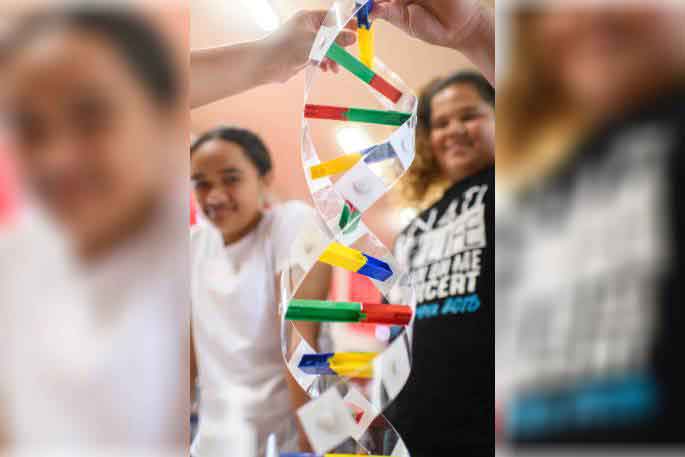Tauranga's Chris Duggan has been interviewed for many stories in The Weekend Sun over the years – all to promote The House of Science, its work, goals and funding needs.
However, recently The House of Science CEO has been recognised for her own hard work and perseverance in bringing her charity to where it is today.
Presented with the Wintec Secondary School Teacher/ Educator award in September, Sun Media talked to Chris about her career led her to creating The House of Science.
Chris graduated from Massey University with a degree in biochemistry and spent her early working years in different labs before taking a position as a lab technician at Kawerau College.
Real concern
'When the school needed another science teacher, it was apparent that I was well-qualified to teach and I moved into a teaching role, training on the job.”
Her next move was to Tauranga Girls' College, as Head of Science and teaching general science and chemistry.
'I saw wave after wave of students who were starting high school with no experience of science and that was a real concern.”
A 2012 Education Review Office report showed 73 per cent of primary schools seen were doing no science at all.
Chris was horrified by this, as New Zealand prides itself on being a developed country.
She says: 'We aren't feeding the curiosity for science in our primary school students and fostering their wondering”.
And she points out that this has a knock-on effect on the continuation of expert scientific knowledge within the country and growing the future workforce.
'By the age of 10, many children have decided what subjects they enjoy and what they might like to do in life.
'If they've had no exposure to science, then that won't be in the mix. Research shows that by 13-14 years old, the boat for introducing them to new subjects has been missed.”
In 2013, Chris quit her teaching job mid-year and set about making a huge change to the teaching of science in our primary schools.
'While it sounds like a dramatic move to quit my job, I knew that if I was going to do this, I needed to devote the time to it and do it properly.”
Chris approached Tauranga primary school principals to identify what was required and discovered the teachers had neither the expertise nor the resources available to them to teach science effectively.
Science kits
From there, she devised a system of science kits that could be lent out to schools from a central library, containing all the equipment, materials and instructions for using them in the classroom, and the House of Science was born.
Chris wanted to focus on resources to give teachers confidence to teach science – as science is an inherently expensive subject to resource.
House of Science offers schools access to really good resources without having to purchase them themselves.
'This all needed funding and I knew nothing about setting up a charity or getting funding.
'So initially it was just me learning on the job and applying for grants. I have been very fortunate to come across some very generous philanthropists and numerous volunteers.
'The Wright Family Foundation are cornerstone partners and their funding has enabled me to expand the House of Science beyond the Bay of Plenty area.”
Some kits have local sponsors to fund their maintenance and distribution and their branding is on the kit.
DairyNZ sponsors several kits that relate to their industry under the project name Moo to You, and government departments such as MPI's Biosecurity team are also involved.
Bilingual
All House of Science resources are now bi-lingual and available in Te Reo Māori and English.
'For me that is a no-brainer, we are a bilingual country and I believe that every teaching resource should be bilingual.”
The House of Science is now running in 18 other regions, each with a manager and teams of volunteers.
Chris has seen a huge shift in teacher confidence, which for her is the bottom line.
'As far as the primary school students are concerned, we are certainly building capacity in the community to look at the world through scientific lenses.”

